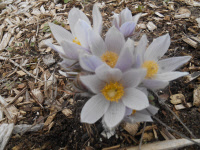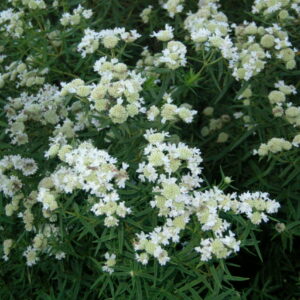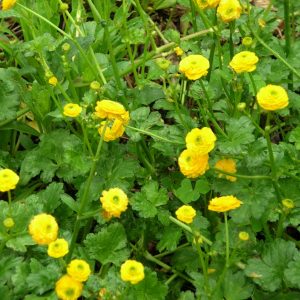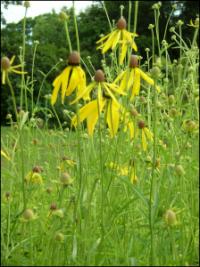Our Plants
Showing 457–464 of 587 results
-
Pulmonaria saccharata ‘Mrs. Moon’ Greater lungwort, Bethlehem sage Z 3-8
In early spring funnel form pink flowers turn to blue above bristly, white mottled green foliage. Leaves attractive through fall
OUT OF STOCK
In earliest spring funnel form pink flowers turn to blue above bristly, white mottled green foliage. Leaves attractive through fall
Size: 8-18” x 18-24”
Care: full to part shade in moist well-drained soil
Native: species France & Italy
Wildlife Value: walnut and deer tolerant. Early source of nectar for bees.The species originally described by English botanist and gardener to Queen Mary, Leonard Plukenet (1641-1706) .Described by Philip Miller (1768) as having “spotted leaves as if they were incrusted with sugar.” ‘Mrs. Moon’ cultivar offered for sale in 1938 by Gardenside Nurseries in Shelburne VT. Name Pulmonaria from Latin pulmo or lung (e.g.today’s pulmonary) because the blotched leaves were considered to resemble lung disease. Saccharata comes from Latin word for sugar because the white bristly leaves resembled sugar coating.
-
Pulsatilla patens syn. Anemone patens Eastern pasque flower Z 3-7
Up-facing blue-violet bells in early spring emerge from foliage decorated with silky hairs.
ARCHIVED
Note: This is a plant not currently for sale. This is an archive page preserved for informational use.
Up-facing blue-violet bells in early spring emerge from foliage decorated with silky hairs.
Size: 8-12” x 4-6" slow to grow, so be patient
Care: sun in moist well-drained to well-drained soil
Native: northern Great Plains including WI, Siberia, AlaskaThe name Pasque is Old French for Easter referring to the spring bloom time. Patens means “spreading.” South Dakota honors this as its state flower.
Collected for gardens prior to 1753. The Blackfoot made a decoction of this plant to speed a baby’s delivery and applied crushed leaves to skin to remedy irritation. Omaha applied fresh, crushed leaves as a poltice for rheumatism. -
Pycanthemum muticum Clustered Mountain Mint, Blunt Mountain Mint Z 4-8
Silvery bracts underlying silvery-pink pincushion flowers blooming from June to September. Flowers and leaves emit a minty fragrance.
Silvery bracts underlying silvery-pink pincushion flowers blooming from June to September. Flowers and leaves emit a minty fragrance.
Size: 12-36” x 12-36” spreading.
Care: sun to part shade in moist to well-drained soil, drought tolerant
Native: Maine to Michigan, south and angling southwest from Wisconsin to Texas
Wildlife Value: Deer resistant. One of highest nectar and pollen producing flowers, attracting copious numbers and kinds of bees, butterflies, wasps, and other insects.
Awards: Georgia Native Plant Society Plant of the Year 2022, Perennial Plant Society of the Year.Collected and described by French botanist André Michaux (1746-1802) who spent 11 years exploring the North America for plants. c. 1795.
-
Pycanthemum virginianum Mountain mint Z 4-8
Corymbs of numerous pinkish-white blossoms, leaves fragrant.
Corymbs of numerous pinkish-white blossoms in August, leaves fragrant.
Size: 3' x 18"
Care: full sun to part shade in moist well-drained to well-drained soil
Native: Wisconsin native, Eastern U.S.
Wildlife Value: attracts butterflies, supports over 50 bee species.Named by Linnaeus in 1753. Pycanthemum is Greek meaning “dense blossom.” Chippewa used it to stop menstrual flow, cure chills and fever and to season meat. The plant gave the Meskwaki energy and lured minks into their traps. Lakota Sioux: “The leaves make a very pleasant tea. An infusion of the plant is taken for coughs.” Grown at America’s 1st botanic garden, Elgin Botanic Garden 1811
-
Ranunculus acris Meadow buttercup Z 4-8 POISON
Scads of cheerful cup-shaped, butter-colored blooms atop wiry stems in late spring to early to mid- summer. Flowers taller than the deeply divided foliage into 3-5 hand-shaped lobes, each of which it divided again into more lobes with sharp-shaped tips with tooth-like edges all with prominent veins. Excellent cut flower
Scads of cheerful cup-shaped, butter-colored blooms atop wiry stems in late spring to early to mid- summer. Flowers taller than the deeply divided foliage into 3-5 hand-shaped lobes, each of which it divided again into more lobes with sharp-shaped tips with tooth-like edges all with prominent veins. Excellent cut flower
Size: 18-24” x 12” slowly spreading
Care: Sun to part sun in moist soil
Native: Europe
Wildlife Value: deer resistant, attracts butterflies and bees.Ranunculus is Latin for little frog, so named by Roman Pliny referring to the wet conditions required by some ranunculus. Named by English naturalist John Ray in Historia plantarum, published between 1686 and 1704, in which he classified 18,000 plant species.
-
Ranunculus repens var. pleniflorus Creeping buttercup Z 3-9
Small bright yellow nearly ball-shaped flowers blooming in May - June on this short groundcover.
Small bright yellow nearly ball-shaped flowers blooming in May – June on this short groundcover.
LIMITED QUANTITES AVAILABLE, LIMIT OF 1 PER CUSTOMER PLEASE
Size: 10" x spreading
Care: part sun to shade in moist soil
Native: Europe, Siberia, from Newfoundland to VirginiaRanunculus is Latin for little frog, so named by Roman naturalist Pliny (23-79) referring to the wet conditions required by some ranunculus. In 1629 John Parkinson (1567-1650) apothecary to James I and royal botanist to Charles I, called this Ranunculus protensis flore multiplici. The root was supposed to break persistent sores by “drawing the venome to the place.” Jefferson planted Creeping buttercup at Monticello in 1782; it may or may not have been this double.
-
Ratibida pinnata Prairie coneflower Z 3-8
Skirt of drooping, sunny, thin petals surround erect brown cone on this fragrant flower, smelling of anise, June-August.
Skirt of drooping, sunny, thin petals surround erect brown cone on this fragrant flower, smelling of anise, June-August.
Size: 4' x 18"
Care: sun to part shade in any soil
Native: Ontario, VT to FL, SD to OK, Wisconsin native
Wildlife Value: Butterfly plant. Birds eat seeds.Pinnata means feathery in Latin referring to the thin petals of the flower. Native Americans cured toothaches with the root & made tea from the cone and leaves. Collected by French plant hunter André Michaux (1746-1802) on the prairies of Illinois in 1795.
-
Rheum palmatum var. tanguticum Ornamental rhubarb Z 4-8
Gigantic, jagged-edge, bronze-tinted turning green foliage with pink plumes reaching skyward atop tall stalks in early summer.
OUT OF STOCK
Gigantic, jagged-edge, bronze-tinted turning green foliage with pink plumes reaching skyward atop tall stalks in early summer.
Size: 8' x 6'
Care: Sun to part shade, moist well-drained fertile soil, mulch in spring
Native: valleys of Gansu, Qinghai, Shaanxi, Xizang, ChinaRhubarb carried from its native China to central Asia and then Europe by caravans more than 2000 years ago. Both Greek physician Dioscoride (40-90) s and Roman Pliny (23-79) mentioned the plant during the 1st century. In 1300’s Marco Polo explained that merchants of China do not take their beasts of burden into the mountains where rhubarb grows because “if eaten (causes) the hoofs of the animal to drop off.” This variety 1st described in 1874.







